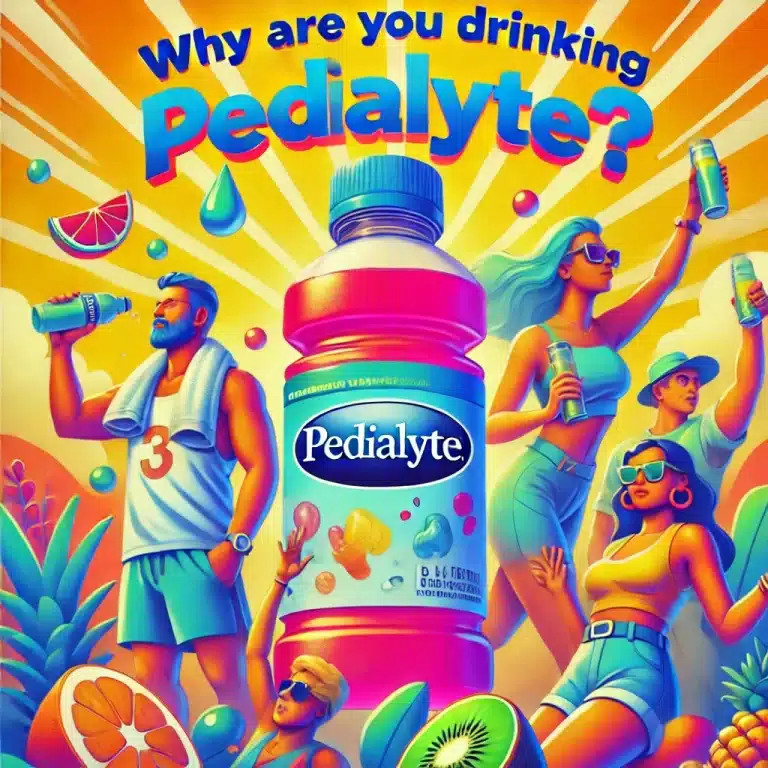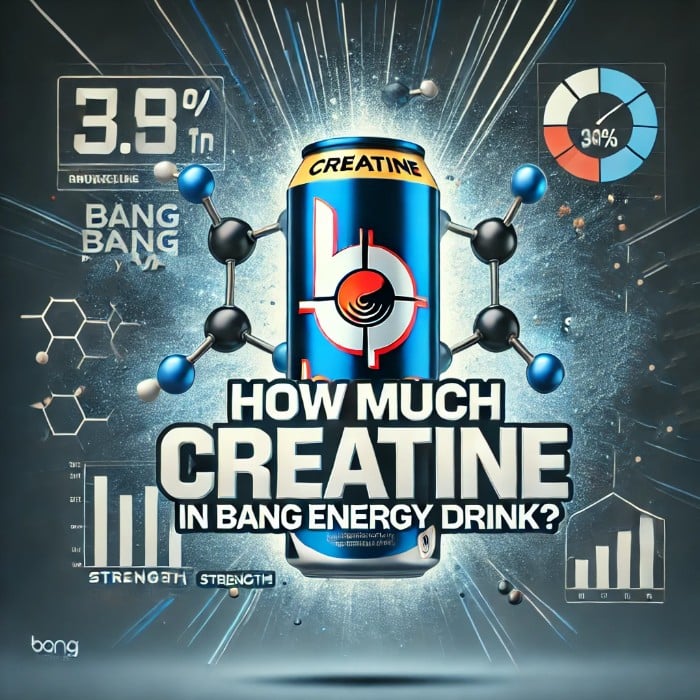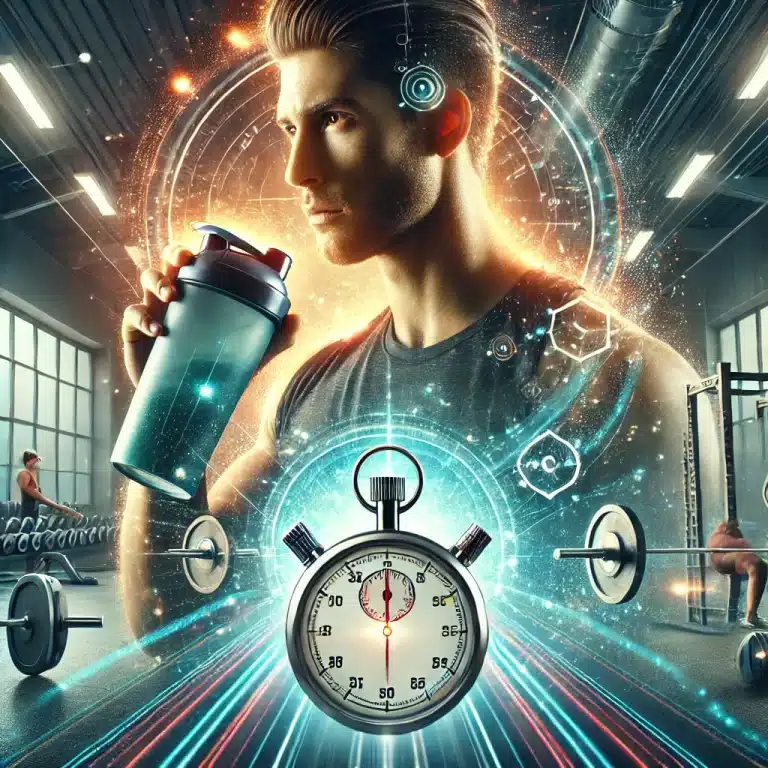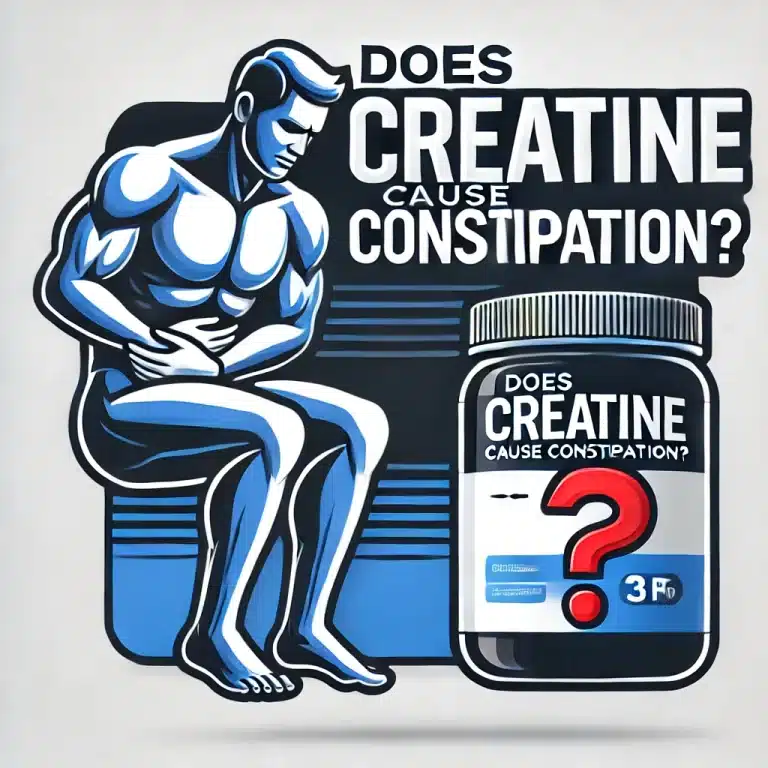Can Creatine Cause Headaches?
If you’ve ever taken creatine and experienced an unexpected headache, you’re not alone. I’ve been there too, wondering, “Is my pre-workout routine the culprit?” Creatine is one of the most popular supplements out there for boosting strength, building muscle, and even helping to lose fat by increasing workout intensity. But can it cause headaches? Let’s dive into the science, personal experiences, and tips to help you figure it out.
Creatine and Headaches Overview:
Creatine is a naturally occurring compound found in the body, mainly stored in muscles, where it plays a critical role in energy production. It helps regenerate adenosine triphosphate (ATP), the molecule your body relies on for short bursts of intense activity, like sprinting or lifting heavy weights. This is why creatine is a staple for athletes, bodybuilders, and anyone looking to improve their strength and endurance. Today, it’s available in various forms from traditional powders to gummies for convenience.
While creatine is generally safe and well-tolerated, some people report experiencing side effects, with headaches being one of the less common complaints. So, why might creatine trigger headaches in certain individuals?
Can Creatine Cause Headaches?
The short answer: it’s possible, but not common. Most people tolerate creatine just fine, but a few factors might trigger headaches. I’ve had my fair share of days where I’ve questioned if my pounding headache was linked to my creatine routine. Turns out, there’s more to the story than just the supplement itself. Let’s break down why this might happen.
1. Dehydration
Creatine pulls water into your muscles, which means if you’re not drinking enough, the rest of your body especially your brain might feel the effects. Dehydration is one of the leading causes of headaches, and if you’re sweating a lot during workouts without replenishing fluids, it can hit hard. Imagine your brain, slightly dehydrated, pulling against its protective layers that’s the pressure you’re feeling.
Signs of dehydration include:
- Dry mouth
- Dizziness
- Fatigue
- Dark yellow urine
I learned this the hard way after an intense summer workout. I had taken my usual creatine dose but hadn’t upped my water intake. The result?
A killer headache that reminded me just how critical hydration is when supplementing with creatine.
2. Changes in Blood Pressure
While creatine isn’t known to cause high blood pressure in healthy individuals, it may affect fluid levels, which could indirectly influence pressure in your head. Some people might be more sensitive to these shifts, leading to headaches.
Interestingly, research shows mixed results. Some studies suggest no significant impact on blood pressure, while others indicate slight variations depending on hydration and sodium levels. If you’re already prone to blood pressure fluctuations, it’s worth monitoring how your body responds when starting creatine.
3. Overconsumption
More isn’t always better. Taking excessive amounts of creatine won’t help you build muscle faster and could strain your body’s system, potentially causing side effects like headaches, bloating, or digestive issues.
A common mistake is not following the recommended dosage, especially during the “loading phase.” While some protocols suggest a loading phase of 20 grams per day, this isn’t necessary for everyone. I’ve found that sticking to a consistent 3-5 grams daily is just as effective without any of the uncomfortable side effects.
4. Caffeine Combination
Many pre-workout formulas combine creatine with caffeine. While both can enhance performance, caffeine is a known trigger for headaches, especially if you’re sensitive to it or not staying hydrated.
Combining high doses of caffeine and creatine may amplify dehydration effects, increasing the likelihood of headaches. I’ve noticed that on days I skip my second cup of coffee, I’m less prone to those annoying post-workout headaches something to consider if you’re dealing with the same issue.
5. Electrolyte Imbalance
Creatine affects water balance, which can also impact electrolyte levels. Low sodium, potassium, or magnesium can trigger headaches, muscle cramps, and fatigue.
Your body’s system relies on a delicate balance of electrolytes to function properly. When this balance is off whether due to excessive sweating, poor hydration, or creatine use it can lead to headaches. Adding an electrolyte drink or increasing foods rich in potassium and magnesium has made a noticeable difference in my routine.
6. Individual Sensitivities
Everyone’s body reacts differently. While some people can take creatine daily without a single issue, others might experience headaches even with proper hydration and dosing. If you’ve ruled out all other causes and still find yourself dealing with headaches, it might simply be your body’s unique response to creatine.
How to Prevent Creatine-Related Headaches
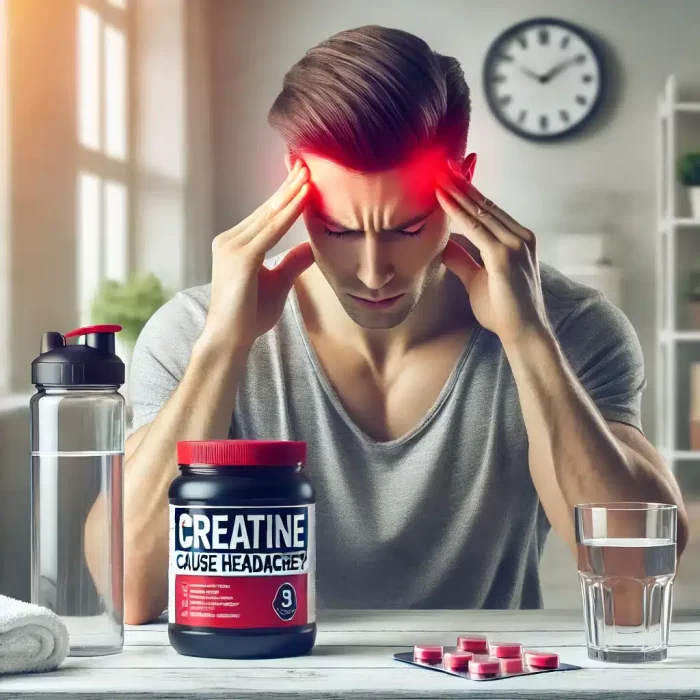
If you suspect creatine is causing your headaches, don’t worry there are several simple strategies you can try to minimize or even eliminate them. Here’s what’s worked for me and others in the fitness community:
1. Prioritize Hydration
This one’s a game-changer. Since creatine pulls water into your muscles, your overall hydration needs increase. Aim for at least 3 liters (or about 100 ounces) of water per day, especially if you’re exercising intensely or in hot weather. A good rule of thumb? If your urine is dark yellow, drink more water.
Pro Tip: Add a pinch of sea salt to your water or sip on an electrolyte drink after tough workouts. This helps your body retain fluids better, reducing dehydration-related headaches.
2. Stick to the Recommended Dose
It’s tempting to think more creatine equals faster gains, but that’s not how it works. 3-5 grams per day is plenty for most people. Overloading your system can cause unnecessary strain, leading to headaches, bloating, and digestive discomfort. I’ve found that consistency over time beats high doses any day.
3. Spread Out Your Dose
Instead of taking your entire creatine dose in one go, try splitting it into two smaller servings, one in the morning and one post-workout. This can help your body absorb it more efficiently and may reduce side effects like headaches or stomach cramps.
4. Monitor Your Body’s Signals
Everyone’s different. Pay attention to how you feel after taking creatine. If you notice headaches shortly after your dose, consider adjusting the timing. Some people feel better taking creatine post-workout when their body is primed for nutrient absorption.
Keep a simple journal: Track your creatine intake, water consumption, exercise routine, and any headaches. Patterns will emerge, making it easier to identify triggers.
5. Balance Your Electrolytes
Proper hydration isn’t just about water, it’s also about electrolytes. Low levels of sodium, potassium, magnesium, and calcium can trigger headaches. Make sure your diet includes:
- Bananas (rich in potassium)
- Leafy greens (high in magnesium)
- Nuts and seeds
- Coconut water (a natural electrolyte drink)
If you’re sweating a lot, consider adding an electrolyte supplement to your routine, especially after intense training sessions.
6. Watch Your Caffeine Intake
If you’re stacking creatine with high caffeine pre-workouts, headaches might be the result of caffeine overload. Try cycling off caffeine for a week to see if your headaches improve. If they do, you’ve found a potential trigger.
7. Choose the Right Creatine Form
While creatine monohydrate is the gold standard, some people find they tolerate creatine HCL or buffered creatine better, as these forms are more soluble and may reduce bloating or digestive discomfort. It’s all about finding what works best for your body.
8. Don’t Skip Meals
Taking creatine on an empty stomach can sometimes cause headaches or nausea. Pair it with a small meal or snack, especially one that includes healthy carbs and proteins. This helps with absorption and reduces the chance of feeling off.
When to Seek Medical Advice
While most creatine-related headaches are harmless and easy to fix, consult a healthcare professional if you experience:
- Severe, sudden headaches
- Vision changes or dizziness
- Confusion or slurred speech
- High blood pressure or chest pain
It’s always better to be safe when dealing with new or intense symptoms.
When Should You See a Doctor?
While most creatine-related headaches are mild and can be managed with simple lifestyle adjustments, there are situations where seeking medical advice is crucial. Headaches can sometimes be a sign of a more serious underlying condition, and it’s important to recognize when it’s more than just dehydration or an electrolyte imbalance.
Red Flags That Warrant Immediate Medical Attention:
- Sudden, Severe Headache: If you experience the worst headache of your life, especially if it comes on suddenly and intensely, seek medical help immediately. This could be a sign of a serious condition such as a brain hemorrhage or aneurysm.
- Vision Changes: Blurred vision, double vision, or sudden vision loss can indicate increased intracranial pressure or other neurological issues.
- Confusion or Trouble Speaking: Difficulty understanding or forming words, sudden confusion, or disorientation can be signs of a stroke or transient ischemic attack (TIA).
- Numbness or Weakness: Sudden weakness, numbness, or paralysis, especially on one side of the body, is a medical emergency.
- Neck Stiffness with Fever: This combination of symptoms can indicate meningitis, a potentially life-threatening infection of the membranes around the brain and spinal cord.
- Persistent Vomiting: Ongoing vomiting, especially if you can’t keep fluids down, can lead to severe dehydration and electrolyte imbalances, worsening the headache and risking additional complications.
- Loss of Consciousness or Fainting: Passing out, even briefly, can signal a serious problem and requires immediate medical evaluation.
When to Schedule a Doctor’s Appointment:
If your headache doesn’t fit the emergency criteria above but still feels unusual or concerning, it’s wise to consult with your healthcare provider, especially if:
- The headache persists for more than a few days despite rest, hydration, and over-the-counter remedies.
- You have had frequent or recurring headaches since starting creatine.
- Your headache is accompanied by jaw pain, chest discomfort, or shortness of breath.
- You have a history of migraines, but the current headache feels different from your usual migraine pattern.
- You experience unintentional weight loss, night sweats, or other systemic symptoms alongside headaches.
Preparing for Your Doctor’s Visit:
When you see your doctor, be prepared to discuss:
- Your creatine usage: How much you take, how often, and in what form (e.g., powder, capsules, gummies).
- Hydration habits: How much water you typically drink, especially around workouts.
- Other supplements or medications you’re using, as interactions could contribute to your symptoms.
- A headache diary: Tracking when your headaches occur, their severity, duration, and any associated symptoms can help identify patterns and potential triggers.
Diagnostic Tests Your Doctor Might Recommend:
Depending on your symptoms, your doctor may order:
- Blood pressure monitoring to assess for fluctuations that could trigger headaches.
- Blood tests to check for dehydration, electrolyte imbalances, or infection.
- Imaging studies such as a CT scan or MRI to rule out structural issues in the brain.
- Lumbar puncture (spinal tap) if meningitis or bleeding is suspected.
What the Research Says:
Research on creatine supplementation has extensively examined its safety profile, with a focus on potential side effects, including headaches. The majority of studies indicate that creatine is generally safe for healthy individuals, with minimal adverse effects.
A comprehensive review published in PubMed analyzed various studies on creatine supplementation and found that while some individuals reported gastrointestinal disturbances and muscle cramps, these effects were anecdotal and not consistently observed across studies. Importantly, the review concluded that there is no significant evidence linking creatine to severe adverse effects in healthy individuals.
In terms of headaches specifically, the literature provides limited evidence of a direct connection to creatine use. A systematic review focusing on adverse outcomes in females taking oral creatine supplementation reported that creatine appears safe at different dosing regimens, with no significant adverse effects on major organ systems.
Interestingly, some research suggests that creatine supplementation may have therapeutic benefits for headache management. A pilot study investigated the effects of creatine administration on children and adolescents with traumatic brain injury and found that creatine supplementation resulted in improvements in post-traumatic headaches, dizziness, and fatigue.
Frequently Asked Questions:
Can creatine cause headaches even if I’m drinking enough water?
Yes, while dehydration is a common trigger, headaches can also result from factors like electrolyte imbalances, blood pressure fluctuations, or sensitivity to creatine itself.
How long do creatine-related headaches last?
The duration varies. Some people experience headaches that last a few hours, while others may have lingering discomfort. If your headache persists for more than 24-48 hours, consult a doctor.
Should I stop taking creatine if I get headaches?
If headaches are severe or persistent, stop using creatine and consult a healthcare provider. For mild headaches, adjusting your hydration, dosage, or intake timing may help.
Does switching from creatine powder to gummies reduce the risk of headaches?
The form of creatine (powder vs. gummies) generally doesn’t affect headache risk. The key factors are dosage, hydration, and how your body reacts to the supplement.
The Bottom Line
So, can creatine cause headaches? It’s possible, but not typical. Most headaches related to creatine are due to factors like dehydration, overuse, or combining it with other stimulants. By staying hydrated, following dosage guidelines, and listening to your body, you can enjoy the benefits of creatine whether you’re using powders, capsules, or even trendy creatine gummies without the headache.
Creatine is a powerful supplement with proven benefits, but like anything, it works best when used wisely. Pay attention to your body, adjust your routine as needed, and keep crushing your fitness goals!


